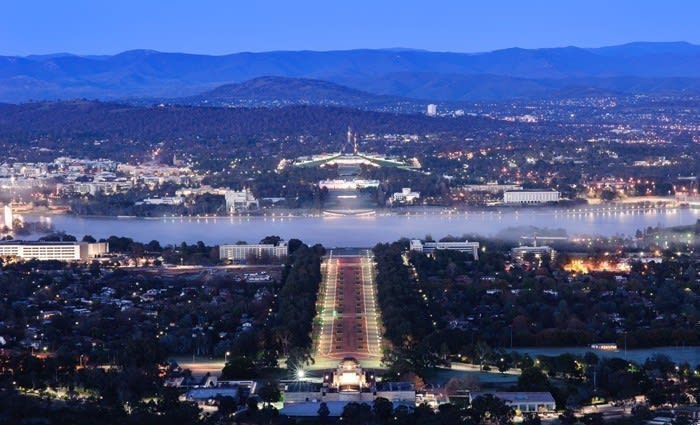Blame our governments for high property prices: Robert Simeon
With another federal election now passed all the political rhetoric about infrastructure will be buried until the next election in three years’ time. Sadly, in Australia our elected governments are only interested in the one thing – taxes.
Since the early 1980’s politicians have conveniently discussed the construction of a high – speed rail link along the east coast where typically nothing has happened, although you can be guaranteed that it will be mentioned again prior to the next federal election. In 2013 the High Speed Rail Study Phase 2 Report estimated that a conventional High Speed Rail Express trip from Sydney to Melbourne would take 2 hours and 44 minutes (about the same time it takes to check into an airport). Sydney to Brisbane would take 2 hours and 37 minutes. Again these reports end up in the too hard basket.
Sydney is now recording the highest prices ever recorded with no signs of easing as the official cash rate keeps going down and this will be the case for easily the next decade. What is urgently required is a high – speed rail link from Sydney to Newcastle and Sydney to the Southern Highlands then to Wollongong. This is the only feasible way that property prices will ease given it’s now urgently required that these three cities are inter – connected.
In 2013 CoreLogic reported that the number of Australian suburbs with a median home value in excess of one million dollars was 264. Their latest data now indicates that this has now jumped to 570.
To provide a frightening case study in June 1992 I sold a home in Ourimbah Road Mosman for $320,000. Every two years I provide the owners with an updated weekly rental and value as the subject property is in a Superannuation Fund. In 2002, our estimated value was $775,000 to $800,00 with a rental of $600.00 to $700.00 per week. In 2006, our estimated value was $1,150,000 to $1,250,000 and the rental $900.00 to $925.00 per week. In 2014, our estimated value was $1,550,000 to $1,600,000 and the rental $1,500.00 to $1,600.00 per week. This week I assessed the property for 2016, our estimated value was $2,300,000 to $2,500,000 and the weekly rental was now $1,800.00 to $2,000.00 per week.
Little wonder the retiring Reserve Bank of Australia governor Glenn Stevens had plenty to say this week on the Australian economy in his farewell speech. Ultimately, low interest rates could only do their job when “someone somewhere has both the balance sheet capacity and the willingness to take on more debt and spend.” Obviously aimed at the federal government to start building better infrastructure in Australia. Private sector debt in Australia for companies equates to 125 per cent of GDP where the government’s debt sits at 40 per cent of GDP.
It’s quite simple that the Sydney property market needs to expand to Newcastle, Hunter Valley, Southern Highlands and Wollongong. Our federal government is spending money on public servants and social services with very little going into new infrastructure which would then drive development, employment and ease the ever growing property prices. Sydney in this instance would be the perfect test case to identify that if you get all the market machinations right you can ease property prices.
The only problem with this is that nobody wants to push and prod the elected governments of the day into direct action. It’s high time politicians became accountable instead of prime ministers claiming the mantle as being the infrastructure prime minister. In a report on High Speed Rail I read: “fast trains to connect the eastern seaboard cities of Melbourne, Canberra, Sydney and Brisbane are feasible, practical and profitable today. The project can be done for about $30 billion, about a quarter of the cost estimated on old paradigms in 2013. And it can be done in less than seven years, not the 30 to 35 years previously suggested.”
“The trains could be the 21st century equivalent of the Snowy Mountains Scheme, and would need little or no direct government funding.”
So one needs to ask the question – why then is nothing happening? Unfortunately, the answer may well be that Australian politicians have no train of thought.
MOSMAN – 2088
Number of houses on the market this time last year – 47
Number of houses on the market last week – 42
Number of houses on the market this week – 51
Number of apartments on the market this time last year – 41
Number of apartments on the market last week – 41
Number of apartments on the market this week – 44
CREMORNE – 2090
Number of houses on the market this time last year – 2
Number of houses on the market last week – 7
Number of houses on the market this week – 10
Number of apartments on the market this time last year – 18
Number of apartments on the market last week – 17
Number of apartments on the market this week – 16
NEUTRAL BAY – 2089
Number of houses on the market this time last year – 2
Number of houses on the market last week – 7
Number of houses on the market this week – 8
Number of apartments on the market this time last year – 25
Number of apartments on the market last week – 20
Number of apartments on the market this week – 20
ROBERT SIMEON is a director of Richardson Wrench Mosman and Neutral Bay and has been selling residential real estate in Sydney since 1985.
He has also been writing real estate blog Virtual Realty News since 2000.
